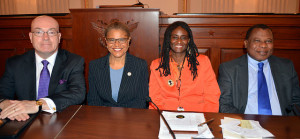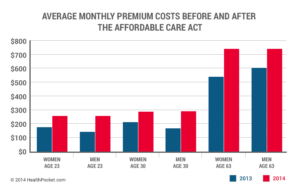By Uchenna Ekwo
Like most crucial public policy debates, the opinions of Americans on the controversial surveillance programs of government are documented by public opinion survey experts.
For example, Americans believe the media outlets that published Edward Snowden’s leaks about national surveillance programs were in the right to do so, a new poll finds.
Asked if the newspapers were right or wrong to publish the information once they got it, 59 percent of respondents said The Washington Post and The Guardian were right, and 33 percent said wrong, according to a recent Gallup Poll.
Similarly, a new Washington Post-Pew Research Center poll found that a majority of Americans are untroubled by revelations about the National Security Agency’s dragnet collection of the phone records of millions of citizens, without any individual suspicion and regardless of any connection to a counterterrorism investigation.
Public support for media’s freedom to end secrecy in government activities as well as public’s passivity by revelations of the secret collection of phone records of citizens suggest that it is time to engage in serious dialogue on how to balance freedom and security. The Wikileak disclosure of diplomatic cables two years ago sparked a dialogue on secrecy and openness. With Edward Snowden, the debate returns to centre stage of public discourse.
The dilemma contemporary society faces in balancing citizens’ right to liberty and government’s obligation to protect citizens through any means have remained a recurring challenge. In the past three months the country is roiled in debates about spying on journalists by Department of Justice or Internal Revenue Service doing its job of seeking information from potential clients seeking to register nonprofit organizations.
We are at a crossroads. Since the 9/11 attack, demands for liberty by citizens and efforts by politicians to present themselves as strong leaders that can do whatever it takes to protect the country against any attack will continue to be sources of conflict between citizens and government. The recurring questions are: Is it possible to strike a correct balance between fighting terrorism and preserving individual liberty? Are citizens willing to accept diminished privacy and liberty?

According to a New York Times editorial: “Surveillance: A Threat to Democracy”, “Americans should not be fooled by political leaders putting forward a false choice. The issue is not whether the government should vigorously pursue terrorists. The question is whether the security goals can be achieved by less-intrusive or sweeping means, without trampling on democratic freedoms and basic rights”.
Consider the following public opinion surveys and you get a sense that a majority of citizens are still trapped on their constitutional rights and postulations of America’s founding fathers.
On the revelation of the NSA surveillance program by Snowden, Americans were evenly divided over whether Snowden was right to leak the information, with 44 percent saying he was and 42 percent saying he wasn’t. Republicans and independents were slightly more supportive, while Democrats were less.
Overall, Americans disapproved of the programs described in the leak, 53 percent disapproving to 37 percent approving. The phone poll of 1,008 adults was conducted June 10-11 and has an error margin of plus-minus 4 percentage points.
“It is necessary to establish a commission to evaluate the hotchpotch of ideas related to individual liberty, government transparency, and national security. It is time to review and perhaps replace outdated principles on civil liberties and constitutional protections to conform to present day realities”.
Meanwhile, a separate poll released Thursday also found the public to be generally supportive of Snowden.
A TIME poll found that 54 percent of respondents said Snowden “did a good thing” to release the information, while 30 percent disagreed. Still, 53 percent of those questioned said the government should prosecute leakers.
Fifty-five percent of those asked also said they were aware the government was conducting surveillance of phone calls, emails and Internet searches before the reports, compared with 45 percent who said they were unaware. TIME surveyed 805 adults from June 10-11 and the results have an error margin of plus-minus 3 percentage points.
When New York Times declares that “the government’s capacity to build extensive, secret digital dossiers on such a mass scale is totally at odds with the vision and intention of the nation’s framers who crafted the Fourth Amendment precisely to outlaw indiscriminate searches that cast a wide net to see what can be caught”, it spoke the minds of many Americans.
But, the reality is that time has changed. The idea of relying on principles enunciated centuries ago to evaluate today’s events, to say the least, is anachronistic. Framers of the constitution never envisaged warfare with unconventional army such as religious fundamentalists who can take their lives to express hatred. Neither did they envisage that man would develop the Internet with unlimited potentials including its use to undermine peaceful coexistence of mankind.
No doubt, protections against different abuses (on the part of government and citizens) in this digital age of genuine terrorist threats need a thoughtful public dialogue. It is necessary to establish a commission to evaluate the hotchpotch of ideas related to individual liberty, government transparency, and national security. It is time to review and perhaps replace outdated principles on civil liberties and constitutional protections to conform to present day realities. Anything short of a timely and smart review will see us engaged in a cycle of debates over the opinion of founding fathers and future fathers of the United States.
Dr. Uchenna Ekwo is the president of the Center for Media & Peace Initiatives.






